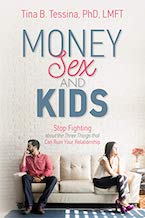
 |
| HOW TO RECOVER FROM A BAD FIGHT
Couples fight, especially new couples who haven’t learned to work together. A nasty fight can happen in any relationship, especially when both parties are stressed or tired. Alcohol makes fighting worse. Fights are like wounds in your relationship. They leave scars, and if they’re really bad, they can poison the relationship, like an infection. So, it’s very important to do “wound care” and clean up the mess. Apologize. It doesn’t matter who you think was wrong, or who started it. If you participated in fighting or were unkind in any way, begin with an apology. Swallow your pride, hurt, and resentment, and say “I’m sorry.” This opens the door to re-approaching the topic in a more functional and healthy way. Switch your focus from who’s right or wrong; and start focusing on what will fix the problem. Take some time to understand what you’re upset about: is it your pride? Are you afraid of losing your partner? Are you lashing out because you’re hurt? Are you upset about something else, and taking it out on your partner? If you understand what’s driving your anger and retaliation, you’ll handle it much more effectively. Every couple is different, and what works for one couple (or in one situation) might not work in another. It takes a certain level of maturity and responsibility to heal the wounds of a fight; or to avoid fighting in the first place. If you can’t find a way to apologize and forgive each other, take a break. I teach my couples to call a “time out” (make a T with your hands as they do in a basketball game) and stop all talk and interaction for at least 20 minutes. Calm yourselves down, take a walk or a shower or pet the dog, and think about what you really want to accomplish with your partner. Of course, if alcohol is present, it’s going to be much harder to think clearly, so wait until both of you have sobered up. If there’s verbal or physical violence, run, don’t walk, to the nearest counselor, and get help. Violence won’t go away on its own, and you need help. Here are some recommendations for recovering from an argument: Take a Break: Take a time out, get alone, take a walk or a shower, or call a friend (not to complain or make your case, call to change your focus) getting a few minutes apart will let you both calm down. Breathe: Take a few deep breaths to burn off the adrenaline and calm your body. Refocus: Instead of continuing to tell yourself why you’re right and your partner is wrong, be more grownup, and focus on what would solve the problem. Understand what is not working for you, so you can explain it calmly to your partner. Remember, you can do all these things before you fight, and eliminate fighting. For your first conversation after the fight: Say Sorry: Be willing to apologize for your part in the fight. It always takes two, so don’t think you’re blameless. If either of you had shut up at the beginning, there would be no fight. Say “I’m sorry, I really don’t want to fight with you. Can we talk it out? I promise to listen this time.” And mean it. Say “Tell me more”: No one listens in a fight, so be big enough to be the first to listen to what your partner is trying to tell you. You’ll find, if you let your partner explain the whole thing, you probably won’t need to fight about it; and you’ll be more likely to be heard, also. Hug: A hug is reassurance that you still love each other, even after a fight. Don’t force one on your partner, but make the offer, open your arms, and see if your partner will move into them and hug you. If not, let it go for a little while, and try again later. As they say, resentment is like taking poison and expecting the other person to die. Stop repeating a litany to yourself about what you don’t like about what your partner is saying or doing. Use the three steps above to calm down and think clearly. Here are some things NOT to do after a fight. Don’t drink alcohol. It will just fuel your resentment. Don’t spend the whole time focused on how you were right, and your partner was wrong. Instead, focus on what will fix the problem, and what you’d like to (calmly) ask for. Don’t stomp out of the house without saying where you’re going and when you’ll be back. “I’m going for a walk to clear my head. I’ll be back in half an hour” Don’t send any “parting shots” about how you’re right or your partner is wrong. ©2023 Tina B. Tessina. Adapted from: Money, Sex and Kids: Stop Fighting about the Three Things that Can Ruin Your Relationship 2nd Ed 
Author Bio: Tina B. Tessina, Ph.D.is a licensed psychotherapist in S. California since 1978 with over 40 years’ experience in counseling individuals and couples and author of 15 books in 17 languages, including Dr. Romance’s Guide to Finding Love Today; It Ends With You: Grow Up and Out of Dysfunction; The Ten Smartest Decisions a Woman Can Make After Forty; The Real 13th Step; How to Be Happy Partners: Working it Out Together; How to Be a Couple and Still Be Free; Money, Sex and Kids, and her newest, 52 Weeks to Better Mental Health. She writes the “Dr. Romance” blog, and the “Happiness Tips from Tina” email newsletter. Online, she’s known as “Dr. Romance.” Dr. Tessina appears frequently on radio, TV, video and podcasts. She tweets @tinatessina. | ||
| RETURN TO HAPPINESS TIPS • GO TO HOME PAGE | ||
| Phone: (562)438-8077 | for permission to reprint, email: tina@tinatessina.com All material ©2023 Tina Tessina. All rights reserved. |